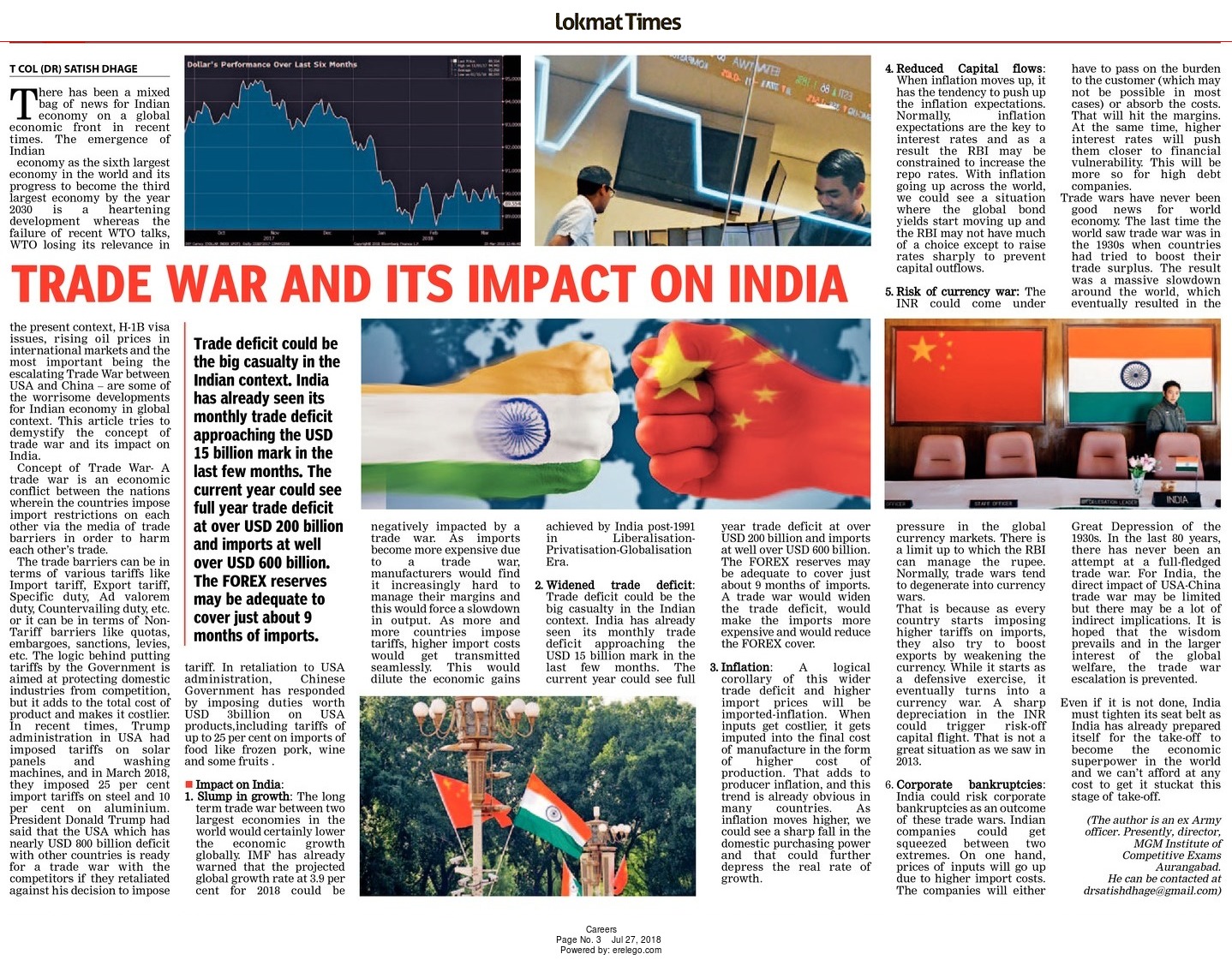TRADE WAR AND ITS IMPACT ON INDIA
There has been a mixed bag of news for Indian economy on a global economic front in recent times. The emergence of Indian economy as the sixth largest economy in the world and its progress to become the third largest economy by the year 2030 is a heartening development whereas the failure of recent WTO talks, WTO losing its relevance in the present context, H-1B visa issues, rising oil prices in international markets and the most important being the escalating Trade War between USA and China – are some of the worrisome developments for Indian economy in global context. This article tries to demystify the concept of trade war and its impact on India. Concept of Trade War- A trade war is an economic conflict between the nations wherein the countries impose import restrictions on each other via the media of trade barriers in order to harm each other’s trade. The trade barriers can be in terms of various tariffs like Import tariff, Export tariff, Specific duty, Ad valorem duty, Countervailing duty, etc. or it can be in terms of Non-Tariff barriers like quotas, embargoes, sanctions, levies, etc. The logic behind putting tariffs by the Government is aimed at protecting domestic industries from competition, but it adds to the total cost of product and makes it costlier. In recent times, Trump administration in USA had imposed tariffs on solar panels and washing machines, and in March 2018, they imposed 25% import tariffs on steel and 10% on aluminium. President Donald Trump had said that the USA which has nearly USD 800 billion deficit with other countries is ready for a trade war with the competitors if they retaliated against his decision to impose tariff. In retaliation to USA administration, Chinese Government has responded by imposing duties worth USD 3billion on USA products,including tariffs of up to 25% on imports of food like frozen pork, wine and some fruits . Impact on India- Trade wars have never been good news for world economy. The last time the world saw trade war was in the 1930s when countries had tried to boost their trade surplus. The result was a massive slowdown around the world, which eventually resulted in the Great Depression of the 1930s. In the last 80 years, there has never been an attempt at a full-fledged trade war. For India, the direct impact of USA- China trade war may be limited but there may be a lot of indirect implications. It is hoped that the wisdom prevails and in the larger interest of the global welfare, the trade war escalation is prevented. Even if it is not done, India must tighten its seat belt as India has already prepared itself for the take-off to become the economic superpower in the world and we can’t afford at any cost to get it stuck at this stage of take-off. (The author of this article ,Lt Col (Dr) Satish Dhage, is an ex Army officer and has been qualified for IPS (Indian Police Services) through IPS LCE 2012. Presently, he is Director, MGM Institute of Competitive Exams Aurangabad. For any queries or feedback, he can be contacted on email id : drsatishdhage@gmail.com)




